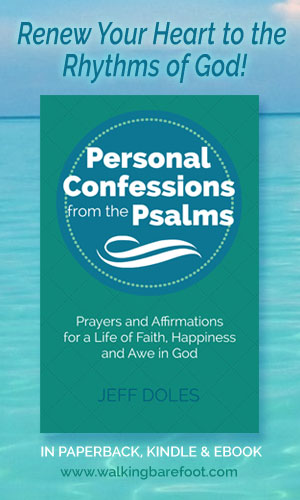God Will Deliver Us — Without a Doubt!
MOST Christians have heard about Shadrach, Meshach and Abed-Nego — the three young Hebrew men who were delivered out of the fiery furnace. Those were the Babylonian names given to Hananiah, Mishael and Azariah, when they were carried off into exile and trained for service in the courts of the Babylonian king, Nebuchadnezzar (Daniel 1:7).
Now, Nebuchadnezzar made an image of gold to honor himself, and he decreed that at a certain time, when all the instruments sounded, everyone should fall down and worship before it. Whoever failed to do so would be cast into the midst of a burning fiery furnace. The day came, the instruments sounded, and everyone fell down and worshiped the golden image — everyone except Shadrach, Meshach and Abed-Nego.
When it came to the king's attention that there were three who would not bow, he became enraged and had them brought before him. He gave them one last chance and said, "If you do not worship, you shall be cast immediately into the midst of a burning fiery furnace. And who is the god who will deliver you from my hands?" (Daniel 3:15).
Shadrach, Meshach, and Abed-Nego did not even try to defend themselves. They simply said, "O Nebuchadnezzar, we have no need to answer you in this matter. If that is the case, our God whom we serve is able to deliver us from the burning fiery furnace, and He will deliver us from your hand, O king. But if not, let it be known to you, O king, that we do not serve your gods, nor will we worship the gold image which you have set up" (Daniel 3:16-18 NKJV).
Getting the Story Right
Most Christians have heard this story, but many have misread it and gotten it wrong. They think it goes something like this: The three Hebrews answer Nebuchadnezzar and say, "O king, our God is able to deliver us, and He will deliver us. But if he doesn't, we still will not worship your image." According to this version, they were not sure that God would deliver them, and so they had a back-up answer in case God didn't come through on their behalf.
Some versions of the Bible even seem to support this reading. The NASB says, "He will deliver us out of your hand, O King. But even if He does not . . . we are not going to serve your gods." Notice the italicized words — they do not translate anything in the original Hebrew text, but were added by the translators in an attempt to bring clarity. But they actually do just the opposite. They distort the faith of Shadrach, Meshach and Abed-Nego. The NIV gives the same reading without even alerting the reader to the additional words by italicizing them.
Many other versions leave the original reading intact. For example, the King James Version, New King James Version, New Revised Standard Version, Revised English Bible, and the Amplified Bible all follow the Hebrew text without any additions. They simply say, "But if not . . ."
But if not — what? This clause does not refer back to the statement "He will deliver us from your hand, O king," as if to say, "Maybe God will deliver us, or maybe God won't." No, not at all. Rather, "but if not," in verse 18, relates back to the previous "if that is the case," in verse 17.
Nebuchadnezzar had just said that if the Hebrews did not bow, he would throw them into the fiery furnace. Then he asked, "And who is the god who will deliver you from my hands."
Here is the force of how the Hebrews answered: If that is the case, O king, and you throw us into the fiery furnace, then know this — our God is able to deliver us, and He will, in fact, deliver us. But if you do not throw us into the fiery furnace, then know this — we still will not worship your image or your gods.
A Clear Challenge
The three Hebrews not only believed that God could deliver them, but they were also confident that God would deliver them. There was no doubt in their words. They did not waver on it one bit.
There are two strong reasons why we know this. First, there is the relationship between the "if" and "if not" clauses. They correspond to each other, like bookends. They lay out the two options the king had before him — to throw the Hebrews in the furnace or not throw them in-and what the results would be in either event.
But there is no such textual reason to suppose that "but if not" refers to whether God would or would not deliver them. That has just been conjecture on the part of those who do not have a clear understanding between faith and doubt. "If" and "if not" are about Nebuchadnezzar's action, not God's.
Second, if the Hebrews thought that God might not deliver them, it would have been completely unnecessary for them to tell the king, in that event, that they would not worship his gods. That would have been self-evident. Imagine how silly it would have been for them to say: "If you throw us into the fiery furnace, and God does not deliver us, we will not bow down to your image." Of course they would not bow down — they would be dead, burnt to a crisp, vaporized! Dead men don't bow down to anything. So it would be quite pointless to for them to say what some have supposed them to have said.
Rather, what they said to the king was not pointless at all, but quite powerful: Pitch us in the furnace, O king. Our God will deliver us and we will continue to worship Him. And if you don't pitch us in the furnace, we are still going to worship our God and not yours. It was a strong challenge they were making to Nebuchadnezzar. It was faith through and through, without any hint of doubt. They said what they believed — "God will deliver us" — and they received what they said.
Faith is not double-minded
The reason so many Christians misunderstand this story is that they do not understand faith and how it operates. They think it is somehow faith to say, "God will deliver us, but if He doesn't . . . ." as they suppose those young Hebrew men to have said. They think you can mix faith with doubt and still get results. The Bible calls that wishy-washy: "But let him ask in faith, with no doubting, for he who doubts is like a wave of the sea driven and tossed by the wind. For let not that man suppose that he will receive anything from the Lord; he is a double-minded man, unstable in all his ways" (James 1:6-8).
If the three Hebrews had said, "Maybe God will, maybe God won't" they would have had no reason to expect anything at all from the Lord. They would have been double-minded, unstable in all their ways — certainly not the faith heroes who "quenched the violence of fire" (Hebrews 11:34). It is faith that pleases God, not doubt (Hebrews 11:6).
Other Christians have problems believing that God is still in the miracle business, that we can trust Him to deliver us in any situation, and expect to see it happen. So they rationalize the faith of those Hebrew champions to give God (and themselves) an escape clause.
They do the same thing when they add "if it be thy will" to all their prayers. They either do not know the will of God, because they have not read His Word sufficiently, or else they do not really believe His promises. They don't really know if they will receive what they are asking, or what God has said, so they tack on "if it be thy will" as an escape clause. That way, they are covered either way.
That is not faith, but doubt. It is double-mindedness and instability. They think God is wishy-washy because they are wishy-washy. There is nothing God-pleasing in that.
Activated faith
Shadrach, Meshach and Abed-Nego operated in faith because they knew God. They knew His name. They knew His ways. They knew His Word. They knew His heart. It is impossible to live by faith without knowing God. The Bible says, "But without faith it is impossible to please Him, for he who comes to God must believe that He is, and that He is a rewarder of those who diligently seek Him" (Hebrews 11:6). The man or woman of faith does not add, "But if He doesn't . . ."
If you need more faith, get to know God more. Get into His Word and you will begin to discover His will and His ways. "Faith comes by hearing, and hearing by the Word of God" (Romans 10:17). As you listen to the Word of God, and receive the words of His heart into your heart, faith will begin to stir inside you.
It is not enough to simply have faith, however. You must know how to use it. Faith is not just a noun, it is also a verb. It is alive and active.
Faith is activated, or exercised, by what we say. Jesus said, "For assuredly, I say to you, whoever says to this mountain, 'Be removed and be cast into the sea,' and does not doubt in his heart, but believes that those things he says will be done, he will have whatever he says" (Mark 11:23).
The three Hebrews said what they believed: "God will deliver us." They did not mix any doubt with that. They did not allow themselves any escape clause. They believed what they said, said what they believed and received what they said.
That is how faith works. We believe what God has said, then say the same thing. God is honored by that, and is not pleased without it. He honors His word in our mouths just as much as He honors it in His own mouth.
The principle really is simple: Believe God in your heart. Do not doubt. Say what you believe. If you will learn to do that, you will begin to walk in the realm of authority that Shadrach, Meshach and Abed-Nego learned to walk in.
And God will deliver you — without a doubt!
© 2003 by Jeff Doles.
All rights reserved.
You are welcome to print it out for personal or small group use. You may also reprint it for non-profit publications online or offline. Just email us let us know — we would love to hear about it. Also, please be sure to include the copyright notice (found at the bottom of each article) along with the following:
“JEFF DOLES is a Christian author, blogger and Bible teacher. His books include The Kingdom of Heaven on Earth: Keys to the Kingdom of God in the Gospel of Matthew and Praying With Fire: Change Your World with the Powerful Prayers of the Apostles. He and his wife, Suzanne, are the founders of Walking Barefoot Ministries. Visit their website at www.walkingbarefoot.com.”




